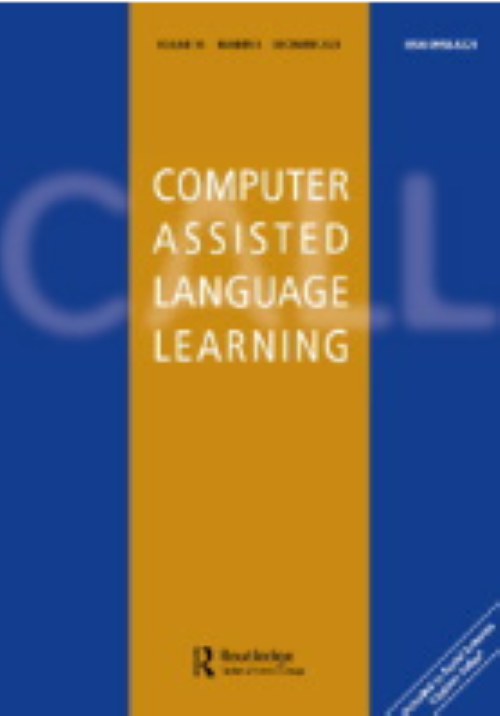LMOOCs对参与者态度学习的影响
IF 6
1区 文学
Q1 EDUCATION & EDUCATIONAL RESEARCH
引用次数: 1
摘要
摘要本研究调查了语言大规模在线开放课程(LMOOCs)参与者的态度学习知觉。本研究采用混合方法对151名在课程中后期完成态度学习问卷的参与者,以及10名参加访谈的参与者的态度学习结果进行了评估。调查问卷用于测量态度学习的四个方面:认知、情感、行为和社会。结果显示,参与者在认知学习、行为学习和社会学习方面都取得了积极的学习成果,这表明LMOOC可以作为一种有用的工具,支持对中国语言和文化的积极态度学习。要特别注意在不同语境下设计和促进LMOOCs,以进一步了解语言学习者及其态度。关键词:态度学习语言MOOC (LMOOC)混合方法设计语言学习者跨文化交际感谢作者感谢Paz Díez-Arcón提出的宝贵意见和建议。作者衷心感谢匿名审稿人提出的建设性意见和建议,对本文的改进做出了重要贡献。披露声明作者未报告潜在的利益冲突。数据可用性声明研究过程中产生和分析的数据集可应通讯作者的合理要求提供。由于与研究参与者隐私相关的伦理限制,这些数据不能公开获取。本研究受国家社会科学基金重大项目资助(基金资助:[No. 1])。[22&ZD317],湖北省与华中科技大学协同发展项目(基金资助:No. 22&ZD317)2021 f06]。本文章由计算机程序翻译,如有差异,请以英文原文为准。
The effectiveness of LMOOCs on participants’ attitudinal learning
AbstractThis study investigated participants’ perceived attitudinal learning in language massive open online courses (LMOOCs). A mixed-method design was used to evaluate the attitudinal learning outcomes of 151 participants who completed the attitudinal learning questionnaire at the middle and end of the course, as well as 10 participants who participated in interviews. The questionnaire was used to measure four areas of attitudinal learning: cognitive, affective, behavioural and social. Results showed that participants perceived positive learning outcomes in cognitive learning, behavioural learning and social learning, providing insights into evidence that an LMOOC can be a useful tool to support positive attitudinal learning toward learning Chinese language and culture. Special attention should be paid to designing and facilitating LMOOCs in various contexts to further understand language learners and their attitudes.Keywords: Attitudinal learninglanguage MOOC (LMOOC)mixed methods designlanguage learnerscross-cultural communication AcknowledgmentsThe authors thank Paz Díez-Arcón for her valuable comments and suggestions. The authors also extend our heartfelt thanks to the anonymous reviewers for their constructive feedback and suggestions, which have significantly contributed to the improvement of this manuscript.Disclosure statementNo potential conflict of interest was reported by the author(s).Data availability statementThe datasets generated and analyzed during the study are available from the corresponding author on reasonable request. The data are not publicly available due to ethical restrictions related to the privacy of research participants.Additional informationFundingThis work was supported by the major project of the National Social Science Fund of China under Grant [No. 22&ZD317] and collaborative project between Hubei Province and the Huazhong University of Science and Technology under Grant [No. 2021F06].
求助全文
通过发布文献求助,成功后即可免费获取论文全文。
去求助
来源期刊

Computer Assisted Language Learning
Multiple-
CiteScore
18.50
自引率
12.90%
发文量
74
期刊介绍:
Computer Assisted Language Learning (CALL) is an intercontinental and interdisciplinary journal which leads the field in its dedication to all matters associated with the use of computers in language learning (L1 and L2), teaching and testing. It provides a forum to discuss the discoveries in the field and to exchange experience and information about existing techniques. The scope of the journal is intentionally wide-ranging and embraces a multitude of disciplines.
 求助内容:
求助内容: 应助结果提醒方式:
应助结果提醒方式:


